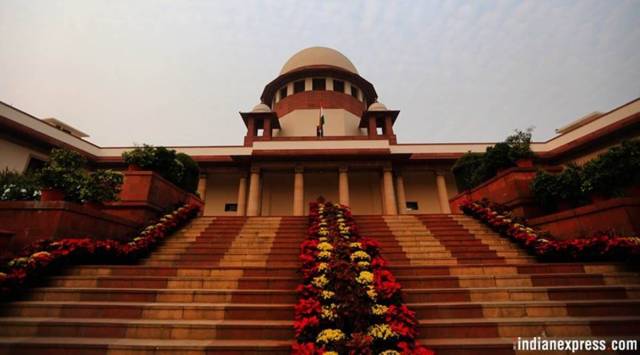Two decades after it was set up by the Supreme Court to flag cases of official non-compliance with its orders related to conservation, the Central Empowered Committee (CEC) will now report to the Environment Ministry which will nominate its members and have the final say on the merit of its recommendations.
The Environment Ministry notified the new order on September 5 after the SC permitted the move “in the interest of all the stakeholders”.

Set up in 2002, and reconstituted in 2008, the CEC has, in the words of the court, “rendered yeoman services to the cause of environment.” It has filed thousands of reports on issues referred to it by the apex court that have shaped the discourse around environment policy. These include compensatory afforestation, net present value of forests, Kudremukh mining, Aravali forests and Bellary mining.
Story continues below this ad
Indeed, in 2006, a CEC report resulted in a month’s simple imprisonment of a former Maharashtra minister and serving Forest Secretary for permitting wood mills to operate in violation of the SC’s order. Most recently, the CEC’s recommendation to cancel the double-tracking of a railway line from Castle Rock in Karnataka to Kulem in Goa was accepted by the SC this May.
That’s changed. Consider these:
- In March, the CEC filed a report against reconstructing a convention centre at Patnitop in Jammu and Kashmir after the SC had allowed it. The SC did not consider it “appropriate” and observed that the CEC could not question the SC. The Bench asked for a few “young” names from the government to replace some of the ageing members of the CEC.
- In May, Solicitor General Tushar Mehta said that the government would publish a draft notification under the provisions of the Environment (Protection) Act, 1986 to make CEC a permanent statutory body, after placing the draft before the SC.
- On August 18, the SC permitted the ministry to proceed further with the constitution of the CEC “as a permanent body would be in the interest of all the stakeholders.” On September 5, the ministry issued the notification.
The notification, sources said, diluted the CEC’s autonomy on four key counts: the committee will report to the ministry, instead of the SC; the ministry will pick all the members and the SC will have no role in the process; the ministry, and not the court, will fund the committee; the provision of having two NGOs in the committee has been done away with. Now anyone considered an “expert” can be included as a member.
The notification makes it clear that “the Committee shall function under the administrative control of the Central Government in the Ministry of Environment”.
“In case any suggestion or recommendation of the Central Empowered Committee is not acceptable to the State or Central Government, the Government shall give reasons in writing for not accepting the same and such decision of the Central Government shall be final,” it says.
Story continues below this ad
The current CEC is chaired by retired IAS officer PV Jayakrishnan and includes retired Forest service officers Amarnatha Shetty, Dr Maharaj K Muthoo, SK Patnaik, and lawyer and naturalist Mahendra Vyas. While the government is yet to name the new members of the CEC, three serving members, when contacted by The Indian Express, declined to comment.
“This marks the end of an era…Until now, the CEC reported directly to the SC and often evaluated the ministry’s decisions. All that will be impossible in the new set-up where the ministry will have total control over the committee,” said conservationist Valmik Thapar who was a member of the CEC during 2002-2007.
Many acknowledged that the CEC required reforms but said they were shocked that the new CEC will be accountable to the ministry.
“This has reduced the entire exercise to a farce. Given that the recent amendments to the Forest Conservation Act completely undermined the SC’s landmark judgment in the Godavarman case, the Forest Bench (of the SC) will no longer be flooded with appeals. It does seem that the government has been successful in reducing the role and influence of the SC,” said Debi Goenka, executive trustee, Conservation Action Trust.









